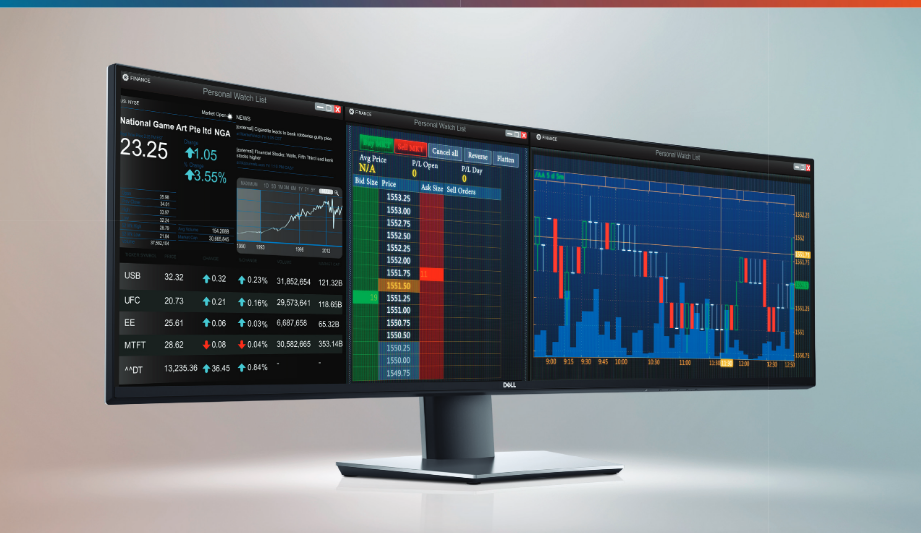Dell have released details of a new ultrawide monitor format: the super-sized Ultrasharp U49 – a curved mega-monitor that measures a desk dominating 49-inches, corner to corner.
Monitor sizes have escalated steadily over the years, with evidence that greater on-screen real estate improves worker productivity; as users can multitask and cross-reference information on screen more easily on a larger desktop space. Accordingly, all the major operating systems have also added support for easier double-app screen sharing, if multi-taskers know where to look.
At ultrawide sizes however, monitors include content outside the user’s peripheral vision (and desk-space) forcing manufacturers to look at a curved chassis design instead. In practice, a curved monitor screen makes significantly more sense than a curved television – since the viewing distance of the observer can be more accurately estimated.
Increasingly popular for financial services and the creative sector, curved ultrawide formats can sometimes feel a little silly: able to open a Microsoft Excel Spreadsheet into the B(A-Z) columns without any user scrolling.
Don’t expect to see U49s very often – Dell will be selling the prestige ultrawide monitor in the US for (a bank-account punishing) $1,700 from the end of October.
The smarter development may be the less publicised: Dell also announced smaller Ultrasharp models with USB-C single cable input – allowing users to incorporate all the traditional device charging and compatibility features of a laptop dock neatly into the back of their screen.
This allows users to instantly connect a portable device (laptop, tablet or convertible) to their desktop monitor with only a single cable, and simply walk away from the desk with their device when needing to work elsewhere.
Take note: this kind of flexible working is coming sooner than you think.
For IT assistance and expertise, please contact Lineal today.

